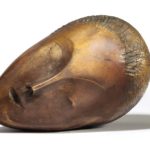LONDON (REUTERS).- The skeleton of a huge whale, thought to have been butchered for its meat, bone and oils 300 years ago, has been discovered by archaeologists on the banks of London’s River Thames. The remains of the headless beast, the now rare North Atlantic Right whale, were found submerged in the thick foreshore mud at Greenwich, an historic maritime center in the east of the city. “This is probably the largest single “object’ ever to have been found on an archaeological dig in London,” said Francis Grew, a senior curator at the Museum of London. “Whales occasionally swim into the Thames, and there are historical accounts of the enormous public excitement they engendered.” Historians believe the creature, estimated to have been 16 meters (52 feet) long, may have foundered in the river in the 17th to 18th centuries, or could have been caught by one of the many whaling ships that operated from
Skeleton of 18th Century Whale Found by Archaeologists in London
Back To Top







